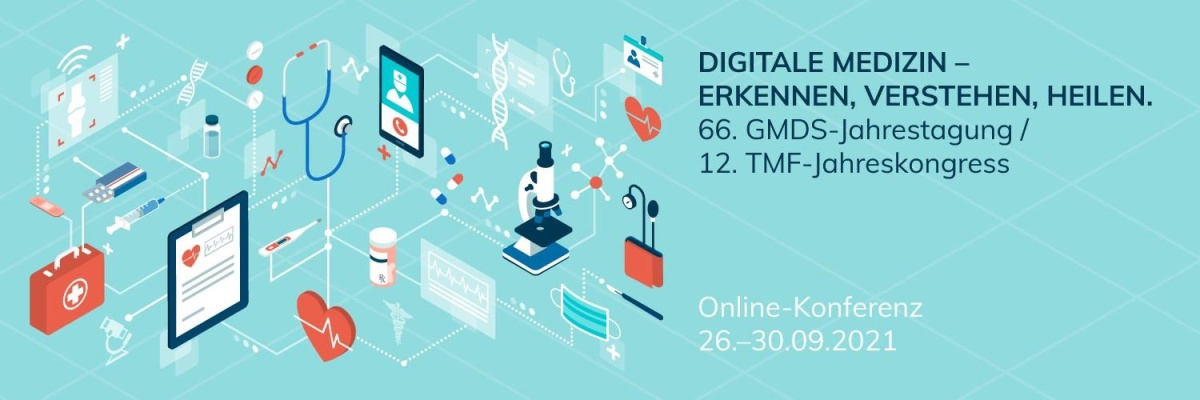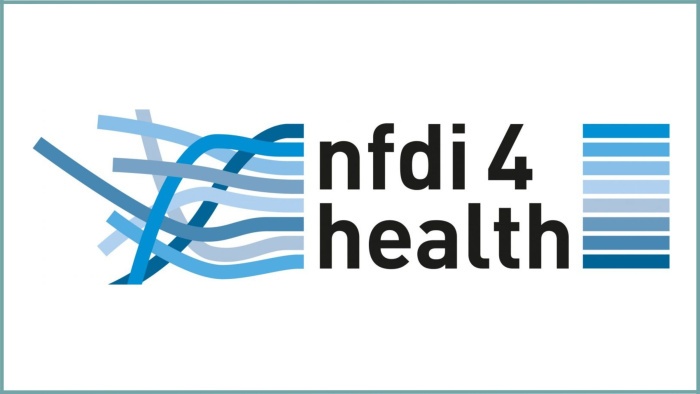Digital Medicine Requires Sustainable Data Access

© Grafik: elenabsl - stock.adobe.com
The digitization of medicine holds great potential because digital health data forms an essential basis for innovation in medicine. The systematic use of digital data, including for AI applications to build learning healthcare systems and for pandemic management, can help further develop the diagnosis, prevention, and therapy of diseases and tailor them more effectively to individual needs. The event's motto, "Digital Medicine. Recognize, Understand, Heal," reflects the opportunities that digitization offers for doctors, patients, and researchers in medicine. The German Society for Medical Informatics, Biometry, and Epidemiology (GMDS) and the Technology and Methods Platform for Networked Medical Research (TMF) jointly organized the annual meeting.

"To better address the future challenges of medicine, experts from various disciplines, from medical informatics to biometrics and epidemiology to social sciences, exchanged views at the annual meeting with the aim of jointly developing solutions for sustainable digitization of medical research," explains Prof. Dr. Alfred Winter, President of GMDS, the importance of the interdisciplinary meeting. "The establishment of sustainable data infrastructures is important, as it provides standardized, high-quality data for care and research across institutions. For this purpose, the separation between research and care must increasingly be overcome, which is becoming tangible with recent developments such as the introduction of research-compatible electronic patient records and the establishment of data integration centers of the Medical Informatics Initiative," says Prof. Dr. Michael Krawczak, the TMF’s Chairman of the Board and one of the congress presidents.
High-ranking speakers from Germany and abroad dealt with technical and methodological questions regarding data management and analysis as well as data protection and security in nine keynotes, 23 lecture sessions, three-panel discussions, and 15 workshops. In addition, the ethical, legal, and political framework conditions for the research use of health data in Germany were examined. Such an interdisciplinary discourse is particularly important, especially in light of the introduction of the electronic patient record in 2021.
The establishment of sustainable data infrastructures is important, as it provides standardized, high-quality data for care and research across institutions.
Research-Compatible Electronic Patient Record (ePA) Starts in 2023
From 2023 onwards, patients, according to § 363 SGB V, will have the opportunity to release parts of their care data stored in the ePA for medical research purposes. However, by then, the necessary interfaces between the ePA and service providers, patients, and researchers must be established. Lena Dimde from gematik explained that as of 1/1/2022, the first structured data types, such as mother and vaccination records, will be available in the ePA, and as of 1/1/2023, data release will be possible via a research data center or, with the appropriate consent from the individuals, directly in a service provider institution. "The research use of the ePA is an important impetus for the strategic expansion of the use of care data and thus for an improved integration of medical research and care. The federally funded Medical Informatics Initiative (MII) and the data integration centers of university medicine, which are part of it, are ready to pilot this research use together with gematik," emphasizes Sebastian C. Semler, TMF Managing Director and Head of the MII Coordination Office.
Hope for Artificial Intelligence
A true revolution in computer-assisted medicine approaches has occurred in the past decade. Today, there is widespread consensus that Artificial Intelligence (AI) will fundamentally change many areas of healthcare. "While often only the technical performance is discussed, the true challenge lies in the integration of AI into the clinical work environment and user acceptance," explains Prof. Dr. Björn Bergh, congress president for GMDS. Also, Prof. Dr. Enrico Coiera, Director of the Center for Health Informatics at the Australian Institute of Health Innovation, urged in his keynote that user needs should have a greater influence on the design of AI applications to increase their acceptance and chances of success. He also called for a stronger focus on the replicability of studies in medical informatics.
Sars-Cov-2 Pandemic Highlights the Problems of Missing Data
The SARS-CoV-2 pandemic has, like under a magnifying glass, highlighted the inadequacy of data in many parts of the healthcare system and medical research in Germany. Far-reaching political decisions had to be made without sufficient data basis. Mathematical modeling was often used during the pandemic as compensation for the poor data situation. Still, the validity of mathematical models ultimately depends on the quality of the data underlying them. The main reason for the "missing data crisis" during the SARS-CoV-2 pandemic was not a lack of digital documentation per se but the extensive fragmentation of existing data sets. Often, blame for this shortcoming was attributed to data protection. Therefore, experts repeatedly called for a balanced approach to data protection during the annual meeting to better utilize the opportunities of digitization in medicine. "However, data protection must not be used as an excuse to distract from one's own shortcomings and failures, including in pandemic control," says Peter Schaar, Federal Commissioner for Data Protection and Freedom of Information (retired).
In his keynote, Dr. Friedhelm Leverkus, Director of HTA & Outcomes Research at Pfizer, advocated for closer cooperation between public and private stakeholders in research. Currently, foreign data is often used in vaccine and drug development in the pharmaceutical industry. That needs to change, Leverkus wishes.
"Digitization must primarily serve to improve healthcare," noted Prof. Dr. Jens Scholz, Chairman of the Executive Board of the University Medical Center Schleswig-Holstein, Campus Kiel, in his welcome address for the annual meeting. "Cross-domain and institution networking, big data, AI, and robotics can also improve research so that research, by utilizing the opportunities of digitization, also contributes to patient welfare. The necessary infrastructural prerequisites must be created immediately."
The Organizers
About the GMDS
The German Society for Medical Informatics, Biometry, and Epidemiology (GMDS) is the only scientific society in Germany, Austria, and Switzerland representing the five disciplines of medical informatics, medical biometry, epidemiology, medical documentation, and medical bioinformatics and systems biology with currently about 2,000 members. It cooperates with several neighboring societies and associations. It also further develops the fields through expert representation, among other things, in the planning of funding measures by public authorities, in questions of standardization and normalization, in the establishment of educational institutions, in training, further education, and advanced training issues, and in legislative measures.
About the TMF
The TMF is the umbrella organization for medical network research in Germany. It is the platform for interdisciplinary exchange and project- and location-independent cooperation to jointly identify and solve the organizational, legal-ethical, and technological problems of modern medical research. Solutions range from expert opinions, generic concepts, and IT applications to checklists and guidelines, to training and consulting services. The TMF provides these solutions freely and publicly.
Press Contact
Wiebke Lesch
Phone: +49 30 2200 24731
Mobile: +49 177 2663257
E-mail: presse@tmf-ev.de
Twitter: @TMF_eV
Further Information


